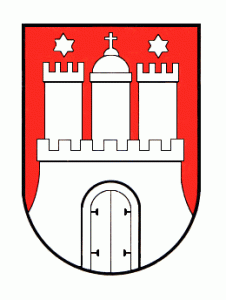Archive for April, 2008
 |
29. April 2008 – 09:01 by Danish Technological Institute
|

Danish Technological Institute (DTI) is an independent, not-for-profit institution with the mission to promote research, business and society, through technology-supported innovation and growth. It has 850 employees spread over seven locations in Denmark and Sweden, and supplies approved technology services such as consultancy, tests, certification, and training for companies and public-sector organisations. DTI’s Centre for Policy and Business Analysis has some 25 employees and provides high level consultancy in policy analysis and evaluation at national and international levels, across the three areas of technology and society, labour market and training, and regional and business development.
For more information please visit: www.dti.dk
INSERT_MAP
Posted in members | No Comments »
 |
25. April 2008 – 14:25 by University Bergamo
|
The “Research Group on New forms of Politics in the networked society” of the University of Bergamo includes:
Anna Carola Freschi is a Ph.D. in Political Sociology at the University of Florence, Faculty of Political Sciences. She is Assistant Professor at the Faculty of Economics, University of Bergamo, where she teaches Sociology and Economic Sociology. She holds a Jean Monnet Module on Information Society and Social Change, at the University of Florence. Her work is about e-participation in an extended meaning (ICTs applied to participation in institutional and non institutional contexts). She has written articles, essays and books about local governance transformation and the social implications of networked society for social and political participation in the Italian society. She is the author of the strategic section of the Italian Guidelines on digital citizenship, a central document of the national Government to support local e-democracy initiatives. She is currently coordinating the group, who collects sociological expertises in social inequalities, deliberative democracy and gender issue, studying some Italian local experiences of e-participation in the institutional contexts (urban strategic planning, participatory budgeting, regional law-making, Agenda 21, etc.).
Read the rest of this entry »
Posted in members | No Comments »
 |
24. April 2008 – 09:03 by E-Voting.CC
|

E-Voting.CC offers holistic and professional consulting covering the whole electoral process, from the planning and the preparations over the implementation to the independent evaluation and election observation worldwide.
INSERT_MAP
Posted in members | 1 Comment »
 |
23. April 2008 – 16:19 by Hamburg
|

The official name “Free and Hanseatic City of Hamburg” goes back to Hamburgs membership in the medieval Hanseatic League. These are the roots of the international trade city Hamburg the commercial and cultural centre of Northern Germany. Hamburg is the second largest city in Germany and the second-largest port city in Europe. Apart from national capitals Hamburg is the most populous city in the European Union. The city, defined according to its current administrative area, contains 1.76 million and the so called Hamburg Metropolitan Area with more than 4.5 million inhabitants.
Read the rest of this entry »
Posted in members | No Comments »
 |
23. April 2008 – 15:37 by CTI
|

The Research Academic Computer Technology Institute (CTI) is a non-profit National Research Organisation under the supervision of the Hellenic Ministry of Education. The Institute’s goals are:
- to conduct basic and applied research concerning hardware and software technology, networks and the socio-economic impact of Information Society,
- to design and develop products and services, to support all forms of ICT, education and training in relation to the Information Society, - to provide consulting, management and technical support services, - to promote innovation and transfer of know-how.
CTI executes 25 projects annually on average, financed by the EU and national actions. CTI has also worked as a technical consultant for numerous Ministries for information and telecommunication technologies, in the Greek Public Sector, having therefore significant expertise in the use of ICTs in decision-making processes.
CTI has a modern technical infrastructure, a complete organisational set-up and a remarkable scientific staff of 210 people: experienced researchers, faculty members, computer engineers and technicians, other domain experts, postgraduate students and administrative staff.
CTI’s e-Government Sector (www.teg.cti.gr) is active in a wide range of areas concerning electronic governance:
- Electronic Democracy and security/trust methodologies with emphasis on electronic voting systems.
- Digitization, documentation, management and promotion of content.
- Language processing infrastructures and tools for effective information management
- Enterprise resource management systems, back-office reorganization and web services
Recently, eGov Sector has designed and developed an internet e-voting system, within a national research project.
For more information please visit: www.cti.gr
INSERT_MAP
Posted in members | No Comments »
 |
23. April 2008 – 11:48 by POLITECH
|

POLITECH INSTITUTE is a not-for-profit international association (AISBL) and a European Center of Political Technologies located in Brussels, Capital of Europe, dedicated to promote novel concepts and innovation empowering the different stakeholders in a ‘citizen-driven’ digital world, as well as support the development of effective strategies, policies and share of best practices in the converging domains of Political Technologies for a better use of Information and Communication Technologies (ICT) towards the advancement of modern public governance and democracy.
POLITECH INSTITUTE offers its members a European and International platform of network, exchange, consultation, information, debate, training, and a European home to research and development initiatives to generate innovation and share best practices.
POLITECH INSTITUTE delivers powerful and expert services to empower, train, educate, activate and mobilize public, academic, civil and private stakeholders and end-users to meet successfully the challenges of modern politics and public governance in Cyberspace.
INITIATIVES & PROJECTS:
POLITECH INSTITUTE organises and participates in international events and workshops dedicated specifically to the implementation of ICT in the EU, such as the “Worldwide Forum on e-Democracy”, Issy-les-Moulineaux (France), the annual “Global Forum, Shaping the Future”.
POLITECH INSTITUTE, in the framework of the first International Executive Master in e-Governance, launched by the Swiss Federal Institute of Technology Lausanne (EPFL) in 2004 and in partnership with University of St. Gallen (Switzerland), Monterrey Tech (Mexico) and the University of Tampere (Finland), organized, in January 2005, a week of seminars and debates dedicated to the European dimension of e-Governance.
POLITECH INSTITUTE publishes the European Review of Political Technologies (ERPT), a unique pan-European online periodical bridging the domains of Political Technologies.
POLITECH INSTITUTE publishes The European eDemocracy Award Report, in partnership with IP LABEL for The Annual European eDemocracy Award, in the framework of The Worldwide Forum on eDemocracy.
For more Information please visit: https://www.politech-institute.org/
INSERT_MAP
Posted in members | No Comments »
 |
15. April 2008 – 17:14 by Dan Jellinek
|

Headstar is a UK-based research, publishing and events company focused on technology, innovation and social issues. Its publications include E-Government Bulletin, on the use of ICT to modernise public services and democracy, and E-Access Bulletin, on access to technology by people with impaired vision.
Headstar’s successful series of conferences and events on technology and social issues include ‘e-Democracy’, the UK’s leading event on the use of the internet and other new technologies to enhance all aspects of the democratic process. Headstar also conducts online debates, consultation and discussion using unique ‘virtual think-tank’ methods; and research and consultancy in all its areas of expertise.
For more information visit: www.headstar.com
INSERT_MAP
Posted in members | No Comments »
 |
11. April 2008 – 09:23 by Madarász Csaba
|

The CEE Citizens Network is a social development initiative involving 17 countries from Central and Eastern Europe. The Network exists to both improve each member organization’s efforts and also result in some external impact in the CEE region through the following objectives:
- Increase awareness of the general public throughout CEE on the potential and impact of citizen initiatives
- Increase skills and capacities of citizens to more effectively participate in local and national development
- Promote citizen participation throughout the CEE region
The mission of the Network is to promote citizens participation in Central and Eastern Europe and provide opportunities for grassroots initiatives to learn and exchange experiences and ideas.
For more information visit: www.ceecn.net
INSERT_MAP
Posted in members | No Comments »
 |
9. April 2008 – 14:00 by Julia Glidden
|

21c is a specialist ‘e’-knowledge management boutique which provides end-to-end strategy and project management services to the public and private sector. Our clients benefit from the agility, innovation and genuine sense of partnership of a close knit team and the methodological rigor of a Big Five consulting firm.
21c helps clients to structure and deliver successful citizen-centric IT programmes. We work closely with our clients throughout every stage of the project cycle – from proposal development to implementation – to identify effective solutions, achieve key milestones and disseminate results. We provide the critical – and often missing – link between IT architects and the community.
21c are uniquely placed in the government market to bring together networks of specialist organisations and people to ensure best of breed solutions for our clients. Our consultants are Prince2 and Managing Successful Programmes qualified, and have hands-on international experience in helping clients to achieve the transformational potential offered by new technologies.
21c Consultancy combines a unique insiders’ understanding of how government operates with a proven track record in the private sector.
For more information visit: www.21cconsultancy.com
INSERT_MAP
Posted in members | No Comments »
 |
9. April 2008 – 11:00 by Civil College
|

The Civil College Foundation (CCF) is a nationwide adult education organization which organizes practical training for citizens willing to act, the members of self-organizing communities, and the participants of community work and community development vocational training programmes.
The Civil College Foundation was founded in 1994 as a result of the joint recognition of an increasing demand for training in community development. The Civil College Foundation is a social, public benefit organization. In 2003 CCF became an accredited adult education institution, under registration number 07-0218-02 of the National Public Education Evaluation and Examination Centre (OKÉV), its institution accreditation is number 0317.
The foundation has purchased a derelict and ruined former elementary school building in Kunszentmiklós-Kunbábony. Having raised 40,000,000 HUF, it renovated the building and converted it into a modern training centre offering residential training facility for 24 + 8 people since 1997. The Civil College Foundation also organizes courses in other parts of the country, adjusting to local needs. At the same time, the community centre hosts events of local public life.
The activity of the organisation: Our trainings have two main groups.
The participants of the „civil trainings” are civil and community activists, who, with the help of the syllabus developed by the CCF trainers and through participation-based adult education methodology, learn how to think from their community’s point of view, learn civil action techniques, etc. These trainings are as follows: community, civil, democracy, community economics development and community media, democracy and Europe training;
The community development and community worker vocational trainings have two areas: the first is the organisation of community development and community worker practice modules for higher education institutions; the other is the medium-level vocational training of those local activists who are at a disadvantage in the labour market. Most of the trainings are 24 hour weekend trainings; the field practices usually last 5 days, the professional trainings 60-120 hours. The number of participants in the trainings is 14-32. Every year 700-800 people join CCF trainings.
The CCF also takes part in professional development projects in community development and in experimental adult education programmes. It has a wide-ranging international network, organises several major national and international events (conferences, seminars, community action programmes, inter-professional programmes) and is involved in the activities of several working groups in order to represent the case of citizen and community participation in the decision-making processes.
INSERT_MAP
Posted in members | No Comments »
















